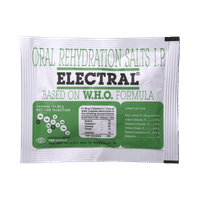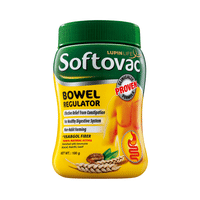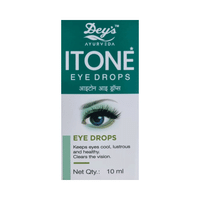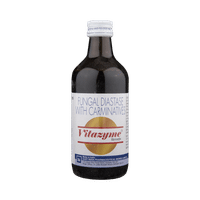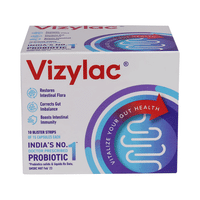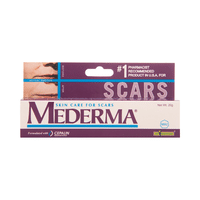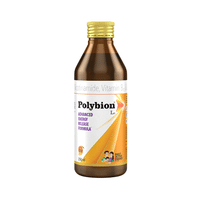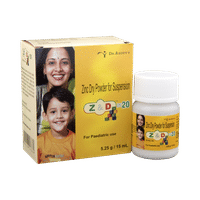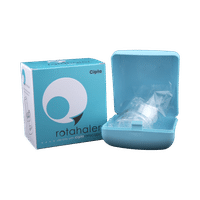Rs.455for 1 pump bottle(s) (100 ml Solution each)
Aceclin Solution కొరకు ఆహారం సంపర్కం
Aceclin Solution కొరకు ఆల్కహాల్ సంపర్కం
Aceclin Solution కొరకు గర్భధారణ సంపర్కం
Aceclin Solution కొరకు చనుబాలివ్వడం సంపర్కం
Aceclin Solution కొరకు మెడిసిన్ సంపర్కం
ఆహారం
ఆల్కహాల్
గర్భధారణ
చనుబాలివ్వడం
మెడిసిన్
No interaction found/established
No interaction found/established
Aceclin Mist Spray is generally considered safe to use during pregnancy. Animal studies have shown low or no adverse effects to the developing baby; however, there are limited human studies.
SAFE IF PRESCRIBED
Aceclin Mist Spray is probably unsafe to use during breastfeeding. Limited human data suggests that the drug may pass into the breastmilk and harm the baby.
CONSULT YOUR DOCTOR
No interaction found/established
Aceclin 1% w/v Solution కొరకు సాల్ట్ సమాచారం
Clindamycin(1% w/v)
Aceclin solution ఉపయోగిస్తుంది
{med_name} is used in the treatment of acne.
ఎలా aceclin solution పనిచేస్తుంది
Aceclin Mist Spray is an antibiotic. It prevents the synthesis of essential proteins bacteria require to carry out vital functions. Thus, it stops the bacteria from growing and prevents the infection from spreading.
Aceclin solution యొక్క సాధారణ దుష్ప్రభావాలు
Dry skin, Skin irritation, Diarrhea, Gastrointestinal disturbance
Aceclin Solution కొరకు ప్రత్యామ్నాయాలు
11 ప్రత్యామ్నాయాలు
11 ప్రత్యామ్నాయాలు
Sorted By
 Rs. 299pay 139% more per ml of Solution
Rs. 299pay 139% more per ml of Solution Rs. 110save 6% more per ml of Solution
Rs. 110save 6% more per ml of Solution Rs. 550pay 11% more per ml of Solution
Rs. 550pay 11% more per ml of Solution Rs. 520pay 5% more per ml of Solution
Rs. 520pay 5% more per ml of Solution Rs. 76save 44% more per ml of Solution
Rs. 76save 44% more per ml of Solution
Aceclin Solution కొరకు నిపుణుల సలహా
- You have been prescribed Clindamycin for the treatment of acne.
- You may have to use it for a long time before your acne starts to improve. Be patient and keep using it every day.
- Wash your skin with a mild cleanser and pat it dry before applying Clindamycin.
- Apply it as a thin layer onto clean, dry, unbroken skin affected by acne.
- It may cause minor burning, stinging, or irritation when applied. Inform your doctor if this does not go away.
- Avoid contact with your eyes, nose, or mouth. Rinse it off with water if you accidentally get the cream in these areas.
- If you think the area of skin you are treating has become more irritated and infected, you should stop using Clindamycin and consult your doctor.
Aceclin 1% w/v Solution గురించి తరచుగా అడిగే ప్రశ్నలు
Clindamycin
Q. How to use Aceclin Mist Spray?
Before using Aceclin Mist Spray, clean and dry the affected area. Gently and thoroughly massage it into the skin. Be careful not to get the medication in your eyes or mouth. If Aceclin Mist Spray gets in your eyes accidentally, wash with plenty of water and call your doctor if your eyes are irritated.
Q. How long should I use Aceclin Mist Spray?
Use Aceclin Mist Spray for as long as your doctor tells you. You may have to use it for several months to clear your acne completely. Even the initial benefits may take several weeks to appear following which you shall be able to note a gradual but definite improvement. Usually, Aceclin Mist Spray should be used for a maximum of 12 weeks. You may need to use more than one tube of Aceclin Mist Spray during each course of treatment.
Q. What does Aceclin Mist Spray do for acne?
Aceclin Mist Spray treats and prevents acne by stopping the growth of bacteria (Propionibacterium acnes) which causes it. Acne is an extremely common skin condition. During adolescence, grease glands in the skin produce extra grease in response to normal amounts of sex hormones in the body which can cause blocked pores (i.e., blackheads). When this happens, the pores are invaded by bacteria. As a result, certain chemicals are produced which go into deeper parts of the skin to produce red spots filled with pus, called acne.













